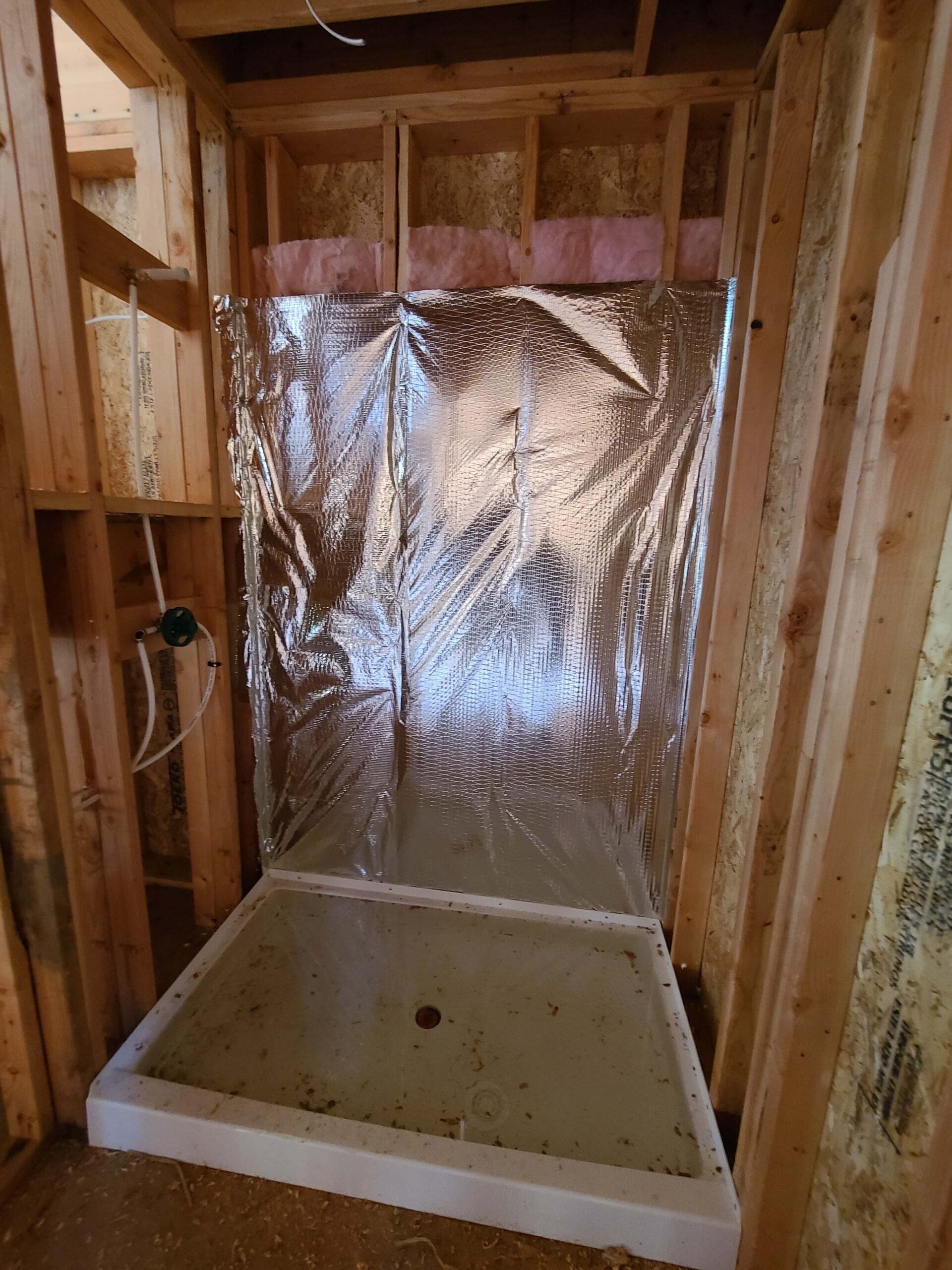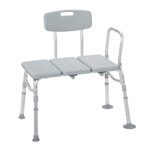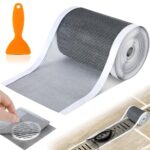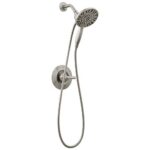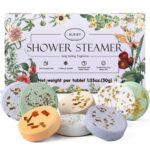Yes, you should insulate a shower wall. Insulating a shower wall offers several benefits.
It improves energy efficiency and reduces moisture damage. A shower wall without insulation can lead to heat loss and water damage. Moisture can seep into walls, causing mold and mildew. Insulation acts as a barrier, preventing these issues. By insulating, you ensure a warmer shower experience and protect your home.
It also helps in soundproofing, making your bathroom quieter. In this blog, we’ll explore why insulating shower walls is a smart move. We’ll discuss the types of insulation, how to install it, and the benefits you can expect. Stay with us to learn how to make your bathroom more efficient and comfortable.
You May Like
- Suitable for shower enclosures, laundry rooms and other wet areas (residential &…
- Two adjustable side panels with folding corners (fits most 30″ to 40″ tubs)
- One wide back panel (up to 60″) for customizable fit
- Finishing trim for side panels included
- Comprehensive Organization: This 6-piece set includes large, medium, and small caddies,…
- Easy, Tool-Free Installation: Enjoy a stress-free setup with our strong adhesives-no tools…
- Durable & Sturdy Build: Crafted from high-quality materials, this caddy set is designed to…
- Waterproof & Rust-Resistant: Engineered with waterproof and rust-resistant components,…
- ELEVATED LOOK FOR YOUR BATH: Featuring a textured multilayer acrylic wall construction,…
- DITCH DULL WALLS, EMBRACE STYLE: With overlapping wall panels and 4 elegant and practical…
- WATERPROOF & LONG-LASTING: With advanced color technology, our bathtub walls & surrounds…
- CUT, SHAPE & INSTALL WITH EASE: These lightweight panels are easy to cut, carry & maneuver…
- 【Sophisticated Marble Design】: Transform your space with these peel and stick wall…
- 【Waterproof and Long-Lasting】: Engineered for durability, these waterproof wall panels…
- 【Easy Installation】: Enjoy hassle-free application with the self-adhesive backing of…
- 【Versatile Decor Solution】: These versatile tiles complement various home decor…
- PREMIUM 72-IN. HEIGHT: Designed to extend above the showerhead for a clean, finished look
- CONTEMPORARY TILE DESIGN: Vertical tile pattern in crisp, glossy white is a sleek bathroom…
- EASY TO INSTALL: Glue-up panels are quick and easy to install, eliminating the need to…
- BUILT TO LAST: Durable wall system is stain and chip-resistant
Introduction To Shower Wall Insulation
Shower wall insulation can keep your bathroom warm. It can also help save energy. Insulation helps reduce noise. This keeps the bathroom quiet. It also prevents mold growth. Mold can be bad for health. Insulation keeps moisture away. This makes the shower area safer and more comfortable.
Insulating a shower wall has many benefits. It keeps the bathroom warm in winter. It saves on heating costs. It also keeps the bathroom cool in summer. This can make showering more pleasant. Insulation also helps with noise reduction. This is useful in busy households. It can make your bathroom quieter.
Another reason is moisture control. Insulation helps keep moisture out. This prevents mold and mildew. Mold can be harmful to health. It can also damage walls. Insulation helps keep your bathroom safe and comfortable.
Many think insulation is only for cold climates. This is not true. Insulation helps in all climates. Some believe it is too costly. But it can save money over time. Others think it is hard to install. But it can be done easily with the right tools. Insulating a shower wall can be simple and beneficial. It is a good way to improve your bathroom.
Credit: www.reddit.com
Thermal Benefits
Insulating a shower wall can save energy. Less heat escapes through the walls. This helps to keep the bathroom warm. Heating costs can be lower. This means more money saved.
Insulation helps to maintain a stable temperature. This makes the shower more comfortable. No cold spots or drafts. Enjoy a warm shower every time. It’s cozy and pleasant.
Moisture Control
Insulating a shower wall helps to keep moisture out. Moisture can lead to mold and mildew. Mold and mildew are bad for health. They also damage walls. Insulation acts as a barrier. This barrier stops moisture from getting inside walls. It keeps the shower area dry. A dry wall is a healthy wall.
Insulating shower walls can reduce humidity. Lower humidity levels make the bathroom feel more comfortable. High humidity can cause problems. It can make the room feel damp. Dampness can lead to damage and bad smells. Insulation helps keep the humidity down. This makes the bathroom a better place to be.
Soundproofing Advantages
Insulating a shower wall can reduce noise and improve privacy. It helps keep bathroom sounds from disturbing other rooms. This simple addition makes the home more comfortable.
Minimizing Noise
Insulating shower walls can help in reducing noise. This is useful if you have a busy home. Noise from water flow and shower use can be loud. Insulation can make your bathroom quieter. This is a simple way to add comfort.
Privacy Enhancement
Insulating walls can also improve privacy. Sounds from your bathroom will not travel easily. This is important for homes with shared walls. Guests will appreciate the extra privacy. Your house will feel more peaceful.
Material Options
Fiberglass is a common choice. It is easy to install. It is also cost-effective. Foam board insulation is another option. It provides great thermal resistance. It is also moisture-resistant. Spray foam is very effective. It fills all gaps. This makes it ideal for shower walls.
For bathrooms, moisture-resistant insulation is best. Fiberglass with a vapor barrier works well. Foam board is another good choice. It does not absorb water. Spray foam is great for sealing. It keeps water out. This helps prevent mold. Always use insulation that can handle moisture. It will last longer. It will keep your shower area dry.
Installation Process
Installing insulation in a shower wall helps maintain temperature and prevents moisture buildup. It creates a more comfortable and energy-efficient space. Proper insulation reduces the risk of mold and water damage.
Diy Vs. Professional
DIY insulation can save money. It is a good choice for handy people. But, it needs the right tools. Mistakes can lead to problems. Professionals have the experience. They know the best materials. They work faster and safer. Hiring a pro may cost more. But, it ensures a quality job. Think about your skills. Consider your budget.
Step-by-step Guide
First, gather all tools and materials. Measure the shower wall area. Cut the insulation to fit. Wear safety gear like gloves. Apply a vapor barrier. Place the insulation in the wall. Secure it well. Cover with a moisture-resistant board. Seal all seams with tape. Finally, install the shower tiles or panels.
Cost Considerations
Insulating a shower wall can save on energy costs and improve comfort. Initial expenses depend on materials and labor, but long-term savings often justify the investment. Proper insulation reduces heat loss and prevents moisture damage.
Initial Investment
Insulating a shower wall can have an initial cost. This involves buying insulation materials and paying for installation. The price will depend on the type of insulation used. Foam boards and spray foam are common choices. Labor costs also add to the initial expense. The total can vary from $500 to $1,500. This is a one-time cost that provides long-term benefits.
Long-term Savings
Insulating a shower wall can save money over time. It helps keep heat inside during showers. This reduces the amount of energy needed to heat water. Lower energy bills mean savings each month. Over years, these savings can add up. Insulation also helps prevent moisture damage. This means fewer repairs and replacements in the future. Investing in insulation now can lead to significant savings later.
Credit: basc.pnnl.gov
Potential Drawbacks
Moisture can get trapped. This can lead to mold and mildew. Mold is dangerous. It can cause health issues. Poor insulation can reduce air circulation. This can make the shower feel damp. Some materials are not waterproof. They can degrade over time. Repair costs can be high. Insulating may also be expensive upfront.
Use waterproof materials. Install a vapor barrier. This helps keep moisture out. Make sure there is good ventilation. This can reduce dampness. Check for leaks regularly. Fix them quickly. Proper maintenance is key. This can prevent many problems. Choose high-quality insulation. It lasts longer and works better.
Frequently Asked Questions
Should I Insulate A Shower Wall?
Yes, insulating a shower wall helps retain heat and reduces energy costs. It also prevents moisture buildup, protecting the structure from mold and mildew.
What Type Of Insulation For Shower Walls?
Use foam board or closed-cell spray foam insulation. They are moisture-resistant and provide excellent thermal insulation for shower walls.
Does Insulating Shower Walls Prevent Mold?
Yes, proper insulation can prevent mold by reducing moisture buildup. It helps keep the walls dry and protects against mold growth.
Is It Expensive To Insulate Shower Walls?
The cost varies depending on materials and labor. Generally, it is a worthwhile investment for energy savings and moisture protection.
Conclusion
Insulating a shower wall is a wise decision. It boosts energy efficiency. The bathroom stays warmer. Less moisture means fewer mold problems. Costs are manageable. Long-term savings are significant. Comfort improves noticeably. Insulation creates a quieter environment. Enjoy a more pleasant shower experience.
Make your home better. Consider insulation for your shower wall.

